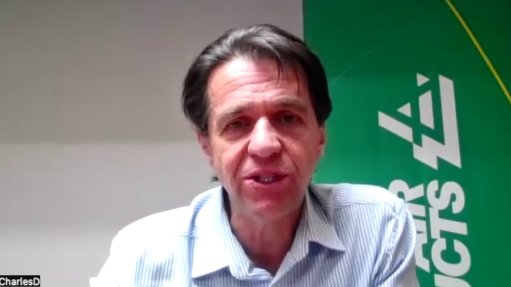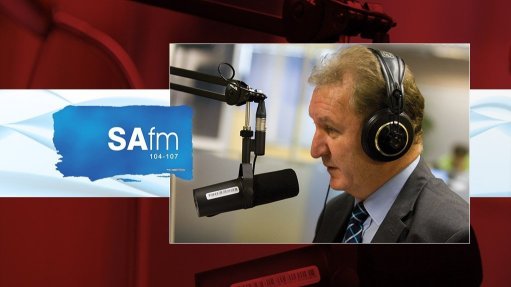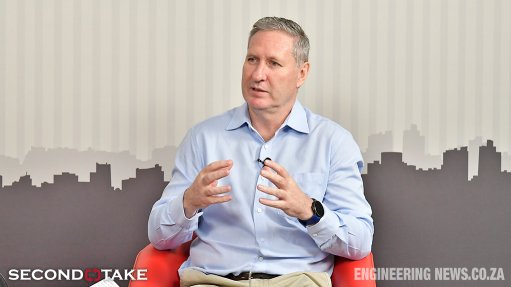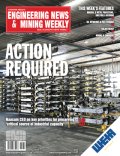Court case clearly shows that taxpayers must prove that an amount is not income
This article has been supplied and will be available for a limited time only on this website.
By: Azwinndini Magadani - Director, Tax Advisory at SNG Grant Thornton
While it is entirely within a taxpayer’s rights to contest the outcome of a South African Revenue Service (SARS) assessment, doing so requires thorough preparation. This means ensuring that documentation is accurate, consistent, and properly presented, and that the explanation they provide does not change.
Without this, the prospects of success are limited, and taxpayers may face additional penalties alongside the disputed tax.
Taxpayers who disagree with a SARS assessment or audit have a well-established process to follow, beginning with a request for the reasons behind the additional assessment. This is often a crucial step, as it clarifies SARS’s reasoning and enables the taxpayer to prepare a formal objection.
An objection must be lodged within 80 business days of receiving the assessment, either through SARS’s eFiling system or at a branch. SARS may allow the objection in full, partially allow it, or reject it, and will communicate the outcome in writing. If dissatisfied, the taxpayer may lodge an appeal at the Tax Court, which will require a carefully developed position supported by evidence. By mutual agreement, SARS and the taxpayer may attempt to resolve the dispute through alternative dispute resolution (ADR). During ADR process, proceedings on the appeal are suspended pending the outcome of the ADR process.
The Tax Court is not a forum where incomplete or inconsistent arguments succeed. It has full powers to confirm an assessment, and any further appeal would require approaching the Supreme Court of Appeal at significant cost.
The importance of this preparation was highlighted in a recent case before the Gauteng Local Division Tax Court, involving a businessman referred to as “Taxpayer D”. The dispute centred on whether his credit loan account in Company A represented a genuine loan or undeclared taxable income.
SARS had assessed the amounts in question, together with the interest earned, as income over a period of four years. The taxpayer contended that SARS had relied on financial statements that were prepared in error and that revised statements corrected the position.
The “successful businessman’s” argument was undermined by inconsistencies. The taxpayer argued that the original set of financial statements, on which SARS had based its assessment, contained errors, while his revised accounts were found to lack credibility. Adding to the difficulty, his representatives conceded that they could not locate certain key documents, including the original loan agreement.
The taxpayer further argued that SARS had not sufficiently explained the basis for its assessment. The court rejected this, finding that the parties had exchanged extensive documentation over several years and that SARS’s reasoning was clear.
In terms of the Tax Administration Act, the onus lies with the taxpayer to prove that an amount is not taxable. SARS was therefore not required to provide its own alternative version of the loan accounts. Despite this, the taxpayer declined to testify in his own defence, leaving important discrepancies unexplained, including a R40 million difference between two sets of accounts.
The context to the matter involved a complex structure in which funds were moved between companies as loan amounts, sometimes at varying interest rates. The differing rates gave rise to SARS’s suspicion that the taxpayer was effectively earning income through these arrangements.
Matters were further complicated by the fact that the businessman also borrowed from loan accounts in his personal capacity to fund other entities, creating an intricate web of transactions.
Company A, the entity under scrutiny, also owned immovable property, which added another layer of complexity.
The Tax Court ultimately found that the taxpayer had failed to discharge the onus of proof. It confirmed SARS’s assessment, ruled that the disputed amounts were taxable, and imposed a 25% penalty on the basis that reasonable care had not been taken in completing the return.
The court stressed that the taxpayer’s explanations had changed multiple times, that he failed to verify the accuracy of the accounts before submitting them to SARS, and that the revised versions were unreliable.
This case underscores several important principles for taxpayers. An objection to an assessment must be supported by sound, verifiable evidence as the taxpayer bears the burden of proving that amounts that SARS recognises as income are not, in fact, income. Revised financial statements that cannot be substantiated are unlikely to succeed, and key documents such as loan agreements and bank statements should always be retained.
Transparency with SARS and with one’s advisers is essential, as is consistency in the explanations provided. As “D” failed to prove his argument, the assessment was upheld and he was fined.
For business owners, the lesson is clear. Tax disputes demand careful preparation, consistent explanations, and robust supporting records. Attempting to contest an assessment without these foundations not only reduces the likelihood of success but also exposes the taxpayer to significant financial risk.
Comments
Press Office
Announcements
What's On
Subscribe to improve your user experience...
Option 1 (equivalent of R125 a month):
Receive a weekly copy of Creamer Media's Engineering News & Mining Weekly magazine
(print copy for those in South Africa and e-magazine for those outside of South Africa)
Receive daily email newsletters
Access to full search results
Access archive of magazine back copies
Access to Projects in Progress
Access to ONE Research Report of your choice in PDF format
Option 2 (equivalent of R375 a month):
All benefits from Option 1
PLUS
Access to Creamer Media's Research Channel Africa for ALL Research Reports, in PDF format, on various industrial and mining sectors
including Electricity; Water; Energy Transition; Hydrogen; Roads, Rail and Ports; Coal; Gold; Platinum; Battery Metals; etc.
Already a subscriber?
Forgotten your password?
Receive weekly copy of Creamer Media's Engineering News & Mining Weekly magazine (print copy for those in South Africa and e-magazine for those outside of South Africa)
➕
Recieve daily email newsletters
➕
Access to full search results
➕
Access archive of magazine back copies
➕
Access to Projects in Progress
➕
Access to ONE Research Report of your choice in PDF format
RESEARCH CHANNEL AFRICA
R4500 (equivalent of R375 a month)
SUBSCRIBEAll benefits from Option 1
➕
Access to Creamer Media's Research Channel Africa for ALL Research Reports on various industrial and mining sectors, in PDF format, including on:
Electricity
➕
Water
➕
Energy Transition
➕
Hydrogen
➕
Roads, Rail and Ports
➕
Coal
➕
Gold
➕
Platinum
➕
Battery Metals
➕
etc.
Receive all benefits from Option 1 or Option 2 delivered to numerous people at your company
➕
Multiple User names and Passwords for simultaneous log-ins
➕
Intranet integration access to all in your organisation





















